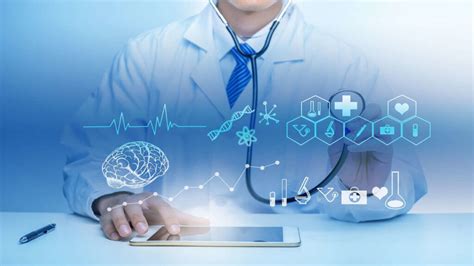The healthcare industry has witnessed a significant transformation in recent years, driven by the convergence of technology and innovation. Heal tech, a term that encompasses the intersection of healthcare and technology, has emerged as a key driver of this change. From telemedicine and artificial intelligence to personalized medicine and genomics, heal tech innovations are revolutionizing the way healthcare is delivered, accessed, and experienced.
The Importance of Heal Tech Innovations
Heal tech innovations have the potential to address some of the most pressing challenges facing the healthcare industry today. These include improving patient outcomes, reducing healthcare costs, enhancing the patient experience, and increasing access to healthcare services. By leveraging cutting-edge technologies, heal tech innovators are developing solutions that are more effective, efficient, and personalized than traditional approaches.
Telemedicine: Expanding Access to Healthcare Services

One of the most significant heal tech innovations in recent years is telemedicine. Telemedicine, also known as telehealth, involves the use of digital technologies to deliver healthcare services remotely. This can include video consultations, phone calls, and messaging services. Telemedicine has expanded access to healthcare services, particularly for people living in rural or underserved areas.
Benefits of Telemedicine
• Improved access to healthcare services • Reduced wait times and increased convenience • Enhanced patient engagement and empowerment • Cost savings for patients and healthcare providers
Artificial Intelligence: Enhancing Patient Care and Outcomes

Artificial intelligence (AI) is another heal tech innovation that is transforming the healthcare industry. AI involves the use of machine learning algorithms and natural language processing to analyze large datasets and make predictions or decisions. In healthcare, AI is being used to enhance patient care and outcomes by analyzing medical images, diagnosing diseases, and developing personalized treatment plans.
Applications of AI in Healthcare
• Medical imaging analysis • Disease diagnosis and prediction • Personalized medicine and treatment planning • Patient engagement and empowerment
Personalized Medicine: Tailoring Treatment to Individual Needs

Personalized medicine is a heal tech innovation that involves tailoring treatment to an individual's unique genetic, environmental, and lifestyle factors. This approach recognizes that each person is unique and that a one-size-fits-all approach to healthcare is no longer effective. Personalized medicine uses advanced genomics and analytics to develop targeted treatments that are more effective and have fewer side effects.
Benefits of Personalized Medicine
• Improved treatment outcomes • Reduced side effects and adverse reactions • Enhanced patient engagement and empowerment • Cost savings for patients and healthcare providers
Genomics: Unlocking the Secrets of the Human Genome

Genomics is the study of the human genome and its relationship to health and disease. Advances in genomics have led to a greater understanding of the genetic basis of disease and the development of targeted treatments. Genomics is being used to diagnose genetic disorders, develop personalized treatment plans, and improve patient outcomes.
Applications of Genomics in Healthcare
• Genetic diagnosis and testing • Personalized medicine and treatment planning • Predictive analytics and risk assessment • Gene editing and therapy






In conclusion, heal tech innovations are transforming the healthcare industry in profound ways. From telemedicine and artificial intelligence to personalized medicine and genomics, these innovations are improving patient outcomes, reducing healthcare costs, and enhancing the patient experience. As the healthcare industry continues to evolve, it is likely that heal tech innovations will play an increasingly important role in shaping the future of healthcare.
What is heal tech?
+Heal tech is the intersection of healthcare and technology. It involves the use of digital technologies to deliver healthcare services, improve patient outcomes, and enhance the patient experience.
What are the benefits of telemedicine?
+Telemedicine offers several benefits, including improved access to healthcare services, reduced wait times, and cost savings for patients and healthcare providers.
How is artificial intelligence used in healthcare?
+Artificial intelligence is used in healthcare to analyze medical images, diagnose diseases, and develop personalized treatment plans. It is also used to enhance patient engagement and empowerment.
